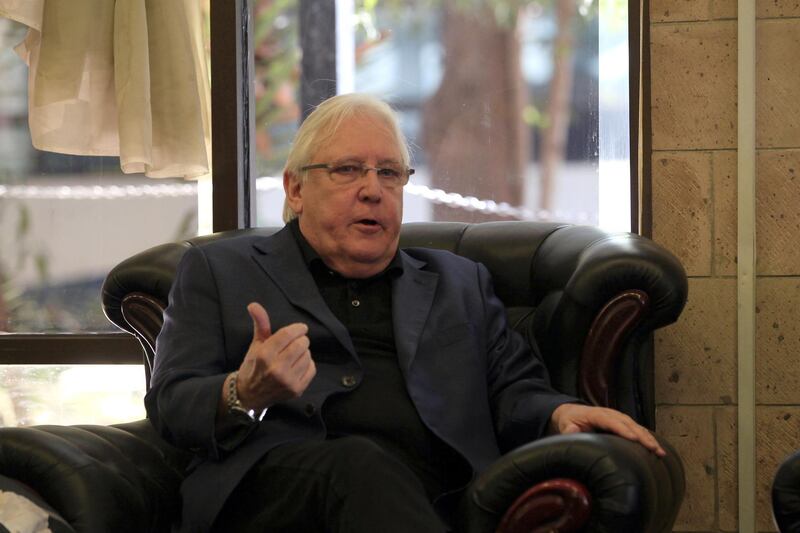Yemen's government has said it will not recognise an agreement between Houthi rebels and the UN to send critically ill civilians abroad for treatment, which was reached without its knowledge.
Officials in Yemen are concerned that fighters from Lebanese Shiite militant group Hezbollah are fighting alongside the rebels and could use the flights to smuggle its fighters and allied rebels out of the country under a medical guise.
“We were surprised when we heard this development; the health ministry has been negotiating this subject with the United Nations for months," said Hamza Al Kamali, deputy minister for youth affairs and a member of the government team that travelled to Geneva for UN-mediated peace talks this month.
"We will not accept this deal or authorise it," Mr Al Kamali said. "The only way we will accept it is if an agreement is made between the legitimate government of Yemen and the United Nations."
There are fears that the Iranian-backed Houthi rebels are seeking legitimacy through negotiations with the UN, despite emerging after illegally taking control of the Yemeni capital Sanaa and several other population centres.
The UN said its humanitarian coordinator for Yemen, Lise Grande, signed an agreement in the rebel-held capital Sanaa on Saturday to transfer "critically ill patients, by chartered air flight, to a medical facility that is equipped to manage such cases".
The agreement covers 12 medical conditions and includes patients suffering from leukaemia, early stage tumours, cervical cancer and thyroid cancer, and those who need radiotherapy, and bone marrow and kidney transplants, said Dr Nevio Zagaria, the World Health Organisation representative in Yemen.
The WHO said an independent international company would review the medical records of patients to ensure they are eligible, without specifying where they would be sent for treatment. It said the humanitarian air bridge would operate for a trial period of six months.
Yemeni Minister of Information, Muammar Al Iryani, said the agreement was a "dangerous development” that challenged international laws and resolutions related to solving the country's crisis, including UN Resolution 2216.
Meanwhile, the UN special envoy to Yemen Martin Griffiths arrived in Sanaa on Sunday to attempt to revive peace negotiations between the government and the Houthis, who refused to attend the talks in Geneva after imposing last-minute conditions.
One of the demands was to allow the rebel delegation's aircraft to carry wounded fighters to Muscat for treatment.
_______________
Read more:
Houthis bar civilians from Hodeidah hospitals to keep beds for fighters
Anwar Gargash hails gains against Yemen's Houthi rebels in Hodeidah
UN envoy Martin Griffiths resumes Yemen peace efforts with visit to Sanaa
_______________
Yemen's civil war, which began when the Iran-backed rebels seized Sanaa, the capital, in September 2014, has left 22 million people – about 75 per cent of the population - in need of assistance, according to the UN.
The UN's appeal for US$3 billion (Dh11bn) for its 2018 Humanitarian Response Plan has so far raised only $1.92bn. More than half of that amount has come from Saudi Arabia and the UAE, the leading members of the Arab military coalition supporting Yemen's government.






